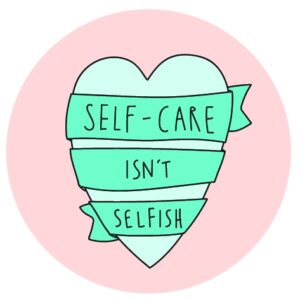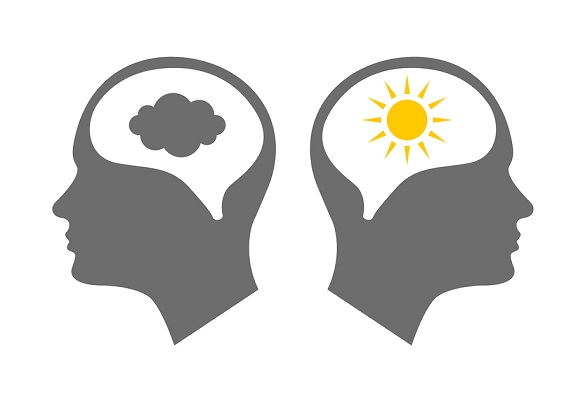A manic episode can be a frightening experience for both the person who is experiencing it and for those around them. It can be hard to understand what is happening and even harder to know how to help. In this blog post, we will discuss what a manic episode is, its symptoms, and how it is treated. We hope that this information will help you better understand this condition and provide you with the resources you need if someone you know is experiencing a manic episode.
Contents
What Is A Manic Episode?
 A manic episode is a period of abnormally high energy, mood, and activity. It’s characterized by feelings of euphoria and a decreased need for sleep. Manic episodes are considered a serious mental health condition that can lead to dangerous behaviors and deterioration of one’s quality of life.
A manic episode is a period of abnormally high energy, mood, and activity. It’s characterized by feelings of euphoria and a decreased need for sleep. Manic episodes are considered a serious mental health condition that can lead to dangerous behaviors and deterioration of one’s quality of life.
In simple words, it is a part of bipolar disorder in which a person experiences an abnormally elevated mood. It is accompanied by increased energy levels and decreased need for sleep. A person experiencing a manic episode may behave impulsively, recklessly, and dangerously.
As bipolar disorder is more common in women, it is often underdiagnosed in men. This could be because the symptoms of a manic episode may be mistaken for other conditions such as ADHD. It’s important to seek professional help if you think you or someone you know may be experiencing a manic episode.
However, not everyone who experiences a manic episode will have bipolar disorder. In some cases, it may be caused by drug abuse or another underlying medical condition. So a professional would be able to give a more accurate diagnosis.
What Is It Like To Experience A Manic Episode?
It is important to understand how it feels when you are going through a manic episode. It is also crucial to realize that not everyone experiences the same symptoms during a manic episode. Some people may feel like they are on top of the world, while others may feel irritable and paranoid.
For instance, someone who is feeling on top of the world may be:
- Talking faster than normal
- Feeling full of energy
- Being easily distracted
- Having a decreased need for sleep
- Behaving impulsively
On the other hand, someone who is feeling irritable or paranoid may:
- Be suspicious of others
- Experience delusions or hallucinations
- Have a decreased appetite
- Be unable to concentrate
- Feel restless or agitated
So as you can see manic episodes can vary greatly from person to person. If you or someone you know is experiencing a manic episode, it is important to seek professional help immediately.
However, there are some general treatment options that are available for people who are experiencing a manic episode. So find a mental health professional who can help you develop a treatment plan.
Symptoms Of A Manic Episode
 The symptoms of a manic episode can vary from person to person. But there are some common signs to look out for:
The symptoms of a manic episode can vary from person to person. But there are some common signs to look out for:
- Elevated mood or feeling “high”
- Increased energy levels or activity
- Decreased need for sleep
- Excessive talking
- Racing thoughts
- Impulsivity or recklessness
- Delusions or hallucinations (in severe cases)
The symptoms are usually severe enough to interfere with a person’s ability to work, study, sleep, or take care of themselves. And they typically last for at least a week (or until hospitalization). It is even possible to experience a “mixed” episode, which has features of both depression and mania.
If you think you or someone you know is experiencing a manic episode, it’s important to get help right away. Manic episodes can lead to some serious consequences if left untreated. Therefore, you should always consult with a mental health professional to get an accurate diagnosis and develop a treatment plan.
What Triggers Manic Episode?
There are many possible triggers for a manic episode. Some people may be more susceptible to developing mania after experiencing a traumatic event or loss. Some of the triggers include:
Bipolar disorder
This is the most common trigger for a manic episode. People with bipolar disorder are more likely to experience mania during times of stress or after using substances. More often, bipolar disorder is the result of a chemical imbalance in the brain. For example, people with bipolar disorder may have too much or too little of a certain neurotransmitter.
Substance abuse
Drugs and alcohol can trigger a manic episode. Stimulants, such as cocaine and methamphetamines, are particularly likely to cause mania. Alcohol abuse can also lead to mania because when you drink, your brain produces more dopamine. And dopamine is a neurotransmitter that’s associated with pleasure and reward.
Sleep deprivation
It is believed that sleep deprivation can trigger a manic episode. This is because when you’re sleep-deprived, your brain doesn’t have a chance to rest and recover. This can lead to an imbalance of neurotransmitters, which can then trigger mania. In fact, sleep deprivation can be so powerful that it can actually induce a manic episode in people with bipolar disorder who are otherwise stable.
Medication side effects
Certain medications can cause mania as a side effect. These include:
- Stimulants
- Corticosteroids
- Antidepressants
- Anti-anxiety medications
This is often an unpredictable side effect, and people may not realize that their medication is causing it. For example, people may start taking an antidepressant to treat their depression, only to find that it causes them to become manic.
Genetic disposition
It is believed that bipolar disorder is caused by a combination of genetic and environmental factors. This means that if you have a family member with bipolar disorder, you may be more likely to develop the condition. The reason may be due to changes in brain function or chemicals that are passed down in families.
Stressful life event
 This is one of the most common triggers for a manic episode. A stressful life event may be something positive, like getting married or having a baby. It can also be something negative, like the death of a loved one or losing your job. More often, it’s a combination of several stressful life events that leads to an episode.
This is one of the most common triggers for a manic episode. A stressful life event may be something positive, like getting married or having a baby. It can also be something negative, like the death of a loved one or losing your job. More often, it’s a combination of several stressful life events that leads to an episode.
These are some common triggers for a manic episode. It is important to recognize some of the triggers in order to try to avoid them. If you are unable to avoid a trigger, it is important to know how to manage the symptoms of a manic episode. Otherwise, the episode can lead to serious problems, like hospitalization. So, do not hesitate to reach out for help if you feel like you are struggling.
How Does A Manic Episode Impact Life?
When someone experiences a manic episode, it can have a profound impact on their life. The symptoms of a manic episode can be so severe that they cause the person to lose touch with reality. This can lead to several consequences, including:
Difficulty functioning at work, school, or home
If the person is not receiving treatment, they may miss work or school, or have difficulty performing their usual tasks at home. This can lead to problems with their job or grades. For instance, they may be fired from their job or fail school because they seem always happy and not working.
Problems with relationships
The person may have difficulty maintaining healthy relationships with family and friends. They may become isolated themselves from others or act erratically, which can strain even the most supportive relationships. The person may also become sexually promiscuous or make grandiose plans that are not realistic.
Financial problems
It is not uncommon for people with bipolar disorder to experience financial problems. This can be due to a number of factors, including impulsivity, poor decision-making, and difficulty sticking to a budget. More often than not, these problems can lead to debt and financial instability. For instance, if someone has a manic episode and goes on a spending spree, they may end up with credit card debt that they cannot afford to pay off.
Hospitalization (in severe cases)
This is usually a last resort, but if you are considered a danger to yourself or others, you may be involuntarily hospitalized. This is done for your safety and the safety of those around you. You will be monitored closely during this time and given medication to help stabilize your mood. After being discharged, you will likely need to continue treatment on an outpatient basis.
If you are experiencing a manic episode, it is important to seek professional help as soon as possible. With proper treatment, you can manage your symptoms and live a healthy, happy life. Manic episodes are usually treated with medication, therapy, or a combination of the two. If you think you may be experiencing a manic episode, please contact your doctor or mental health professional immediately.
How To Treat Manic Episodes?
 Manic episodes are often treated with a combination of medication and therapy. Also, it is important to create a support system of family and friends who can provide emotional stability during this time. Let’s discuss the different treatment options for manic episodes.
Manic episodes are often treated with a combination of medication and therapy. Also, it is important to create a support system of family and friends who can provide emotional stability during this time. Let’s discuss the different treatment options for manic episodes.
Medication
Medications are considered the first line of treatment for people experiencing a manic episode. The most common type of medication used to treat mania is a mood stabilizer. Mood stabilizers help to even out the highs and lows of mood swings. It works by calming the nervous system. Lithium is the most widely studied and used mood stabilizer for treating bipolar disorder.
Other medications that may be prescribed include:
- Antipsychotics – these help to reduce hallucinations, delusions, and paranoia
- Benzodiazepines – these are a type of tranquilizer that can help with anxiety, agitation, and insomnia
- Antidepressants – these can be used to treat the depressive symptoms that often occur during a manic episode
So it is important to work with a mental health professional to determine which medication is right for you.
Therapy
In addition to medication, therapy is an effective treatment option for manic episodes. Therapies such as cognitive behavioral therapy (CBT) can help you understand and change your thinking patterns. CBT can also help you develop healthy coping mechanisms to deal with stressors in your life.
Other types of therapy that may be beneficial include:
- Family therapy – can help improve family communication and support
- Interpersonal and social rhythm therapy – this helps to stabilize the daily routines in your life
- Psychodynamic therapy – focuses on understanding the underlying causes of your illness
Therapies are always conducted by a licensed mental health professional. Because it is important to have someone who understands what you are going through and can provide guidance and support. The aim of therapy is to help you develop the tools you need to manage your illness.
Develop a support system
Having a strong support system of family and friends is an important part of managing a manic episode. These people can provide you with emotional stability and practical assistance when needed. They can also help to hold you accountable for taking your medication as prescribed and attending therapy appointments.
Also sharing your thoughts with your family or friends can be really helpful. It can help to release some of the built-up tension and worry you may be feeling. And talking about your experience can also help them to understand what you’re going through and how they can best support you.
In addition to family and friends, there are also support groups specifically for people with bipolar disorder. These can be a great resource for information, advice, and emotional support from others who understand what you’re going through. So you should try to communicate openly with your loved ones and don’t be afraid to ask for help when you need it.
Self-care
 Along with professional help, there are things you can do to care for yourself during a manic episode. During a manic episode, it’s important to:
Along with professional help, there are things you can do to care for yourself during a manic episode. During a manic episode, it’s important to:
- Get regular exercise. Exercise can help relieve some of the symptoms of a manic episode and can also help improve your mood.
- Eat healthy foods and get enough sleep. Eating nutritious foods and getting enough rest can help you feel better physically and mentally.
- Avoid alcohol and drugs. Alcohol and drugs can make symptoms worse and can also lead to dangerous behaviors.
- Take breaks and relax. When you’re feeling overwhelmed, take a break from work or other activities and try to relax. Taking some time for yourself can help you feel better and more able to cope with symptoms.
- Adhere to your medications. Manic episodes are already difficult to deal with, and not taking your medication as prescribed can make them worse. Be sure to take your medication as directed by your doctor.
These self-care tips will not cure a manic episode, but they can help you feel better and more able to cope with your symptoms. If you’re struggling to care for yourself, talk to your doctor or mental health professional. They can help you develop a plan to care for yourself during a manic episode.
So do not be afraid to ask for help if you are feeling manic. And remember, with the right treatment, most people with bipolar disorder can lead happy and productive lives.
Conclusion
To conclude, a manic episode is a period of abnormally elevated or irritable mood. While symptoms can vary from person to person, there are some common behaviors associated with a manic episode. These include talking very quickly, feeling restless or agitated, engaging in risky behaviors, and having a decreased need for sleep.
Overall, it is important to seek professional help if you or someone you know is experiencing a manic episode. With proper treatment, people can and do recover from manic episodes. You can also contact Therapy Mantra for further help and guidance.
The team of professional therapists can provide you with the support and guidance you need to recover from this condition. Contact us today to learn more about our services. You can also book an online counseling and therapy session or download our free Android or iOS app.


